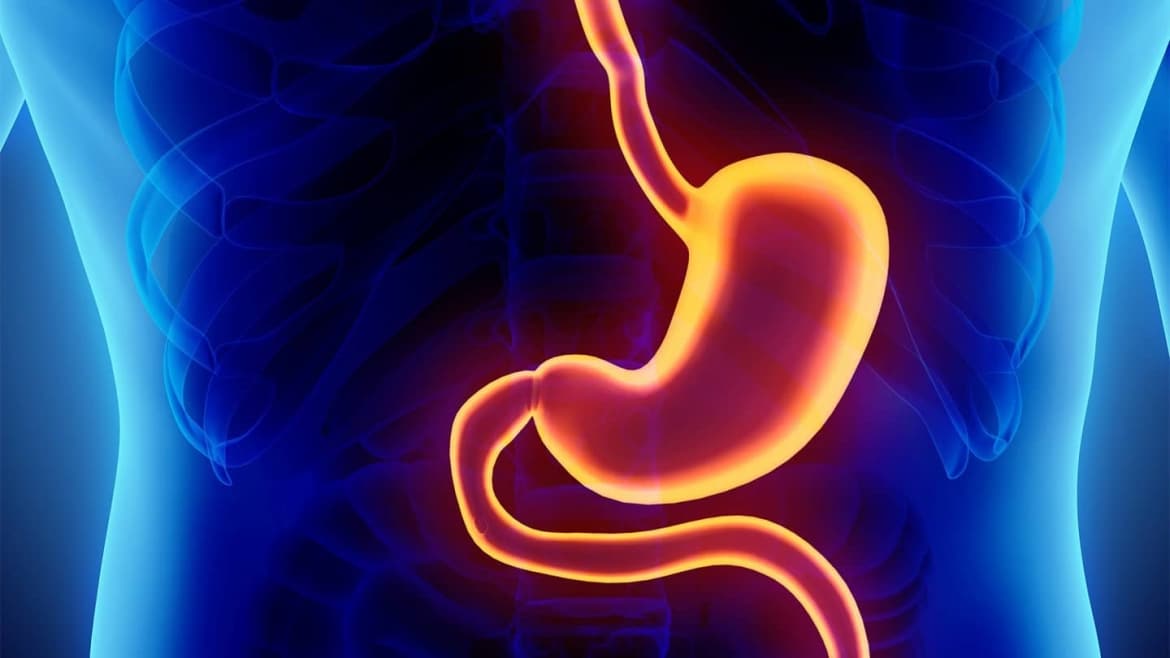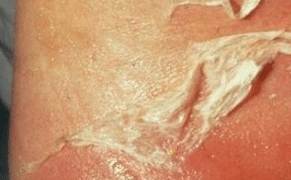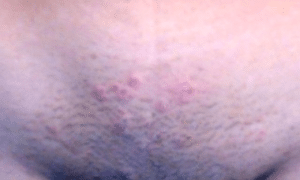Overview
The stomach is part of the digestive system, where food stores from the esophagus and digest into the small intestine and it is surrounding by large lymph nodes.
The stomach is a muscular sac-like organ located on the left side of the upper abdomen, the stomach size varies from one person to another, and from meal to meal.
The flow of food is to the south side down from mouth to the anus. The stomach receives food from the esophagus via a valve called esophageal sphincter.
The stomach secretes acid and some enzymes to break down and digest food.
The food flow goes in one direction where the valves prevent the food from going back to the north side.
Food that came from the esophagus enter the first part of the stomach called cardia, this first region has a valve called cardia sphincter which is a thin ring muscular valve prevent the food from going back up to the esophagus.
After that, the food continues its path toward the second region called the fundus.
After the food leaves the fundus it enters the largest part of the stomach called the body where the food starts to break down.
Then the food content continues to reach the lower part of the stomach called antrum, the antrum holds the broke down food until it is ready to release to the small intestine.
The last stomach part called the pylorus, where the small intestine joins the stomach via a thick muscular valve called the pyloric sphincter, pyloric sphincter prevents the food contents to come back from the duodenum (first part of the small intestine).
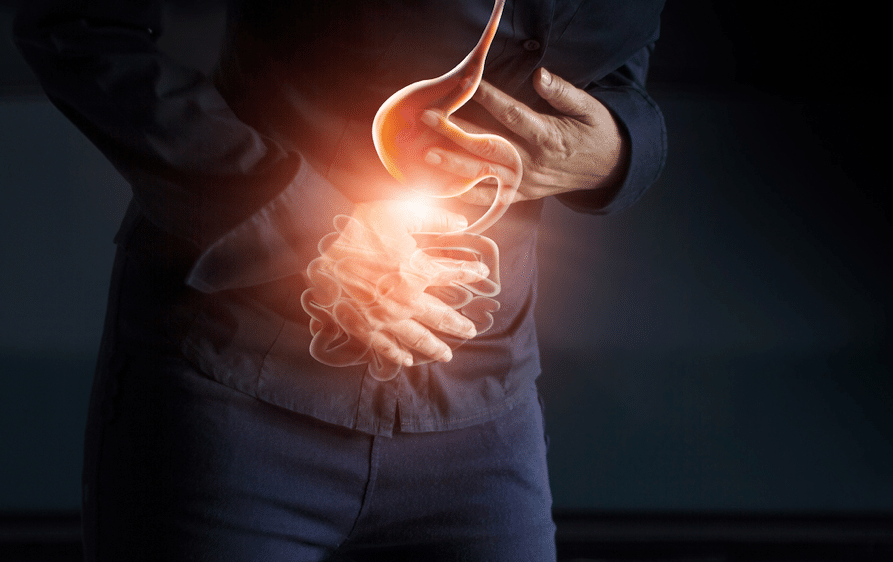
The stomach has three layers.
The first layer is the mucosa contains rugae.
The second layer is the submucosa is made up of blood vessels, nerve cells, connective tissue, and fibers.
The 3rd layer is the muscularis propria it is the main muscle of the stomach.
The gastric gland in the stomach secretes gastric juice, and a variety of enzymes includes hydrochloric acid (HCL), the HCL killed the ingestion bacteria and the protein-digesting enzyme pepsin.
These secretion helps to stomach to break down the food and enhance the digestion method.
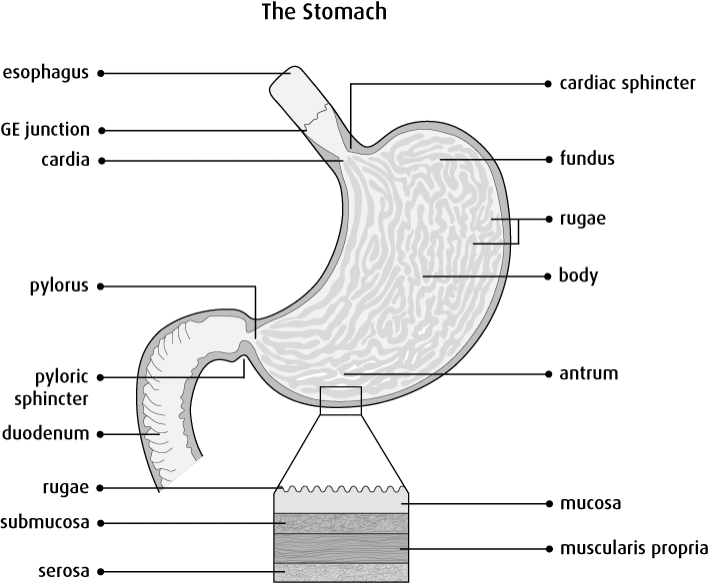
What is gastritis?
Gastritis is the inflammation of the stomach lining due to bacterial infection and it can be acute or chronic.
Recurrent gastritis can lead to peptic ulcers and increase the risk of stomach cancer if left untreated.
What are the causes of gastritis?
Gastritis causes are varies, but these causes are most common and very important.

Gastritis causes include:
- Helicobacter pylori (H.Pylori): Helicobacter pylorus is a bacterial infection affected the stomach lining and it can lead to stomach ulcer and stomach cancer.
- Some type of viral infections
- Using some medications such as nonsteroidal anti-inflammatory
- Crohn’s disease: Crohn’s disease is a type of inflammatory bowel disease that may affect your gastrointestinal system.
- Bile reflux diseases
What are the risk factors?
Are you at risk for having gastritis, risk factors includes?
- Old age: old age people have a great tendency to have gastritis because the stomach lining function decreased.
- Using pain relievers: using pain relievers for a long time may cause your stomach lining to reduce its function.
- Alcohol and tobacco use
- Stress factors
What are the signs and symptoms of gastritis?
In most cases, gastritis doesn’t always cause signs and symptoms, and symptoms vary among people, these symptoms include
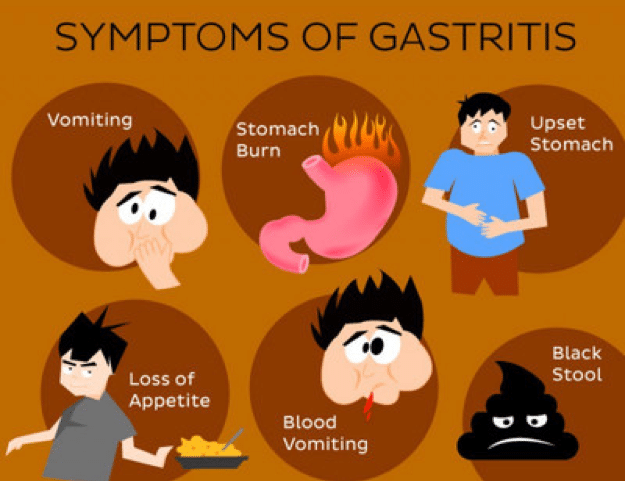
- Abdominal pain
- Abdominal distention
- Nausea and vomiting
- Black stool
Do I have gastritis? What are the diagnostic tools for Gastritis?
Your doctor will take your medical and surgical history and examine your stomach, after that you may do these following tests to know the exact cause of your stomachache.
These tests include:
- Your doctor may take blood samples to test and determine whether you have bacterium helicobacter pylori or not to check any sign of bacterial infection, and complete blood count to check your white cell count for any other kind of infection, and to check your hemoglobin for any sign of bleeding.
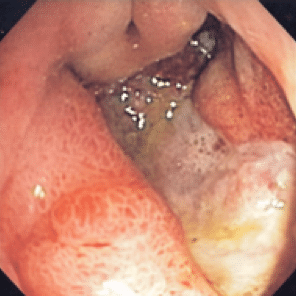
- Your doctor may examine your stomach by passing a thin flexible tube with a lens. This tube enters your mouth down your throat passing your esophagus toward your stomach and small intestine. This procedure helps your doctor to take a view of your stomach lining. This whole procedure called upper Endoscopy
- • Stool for occult blood.
What is the treatment of gastritis?
After taking your medical and surgical history and examine your stomach, after that your doctor will begin the treatment depends on the diagnostic findings. Treatment of gastritis depends on the cause origin.
These treatments include:
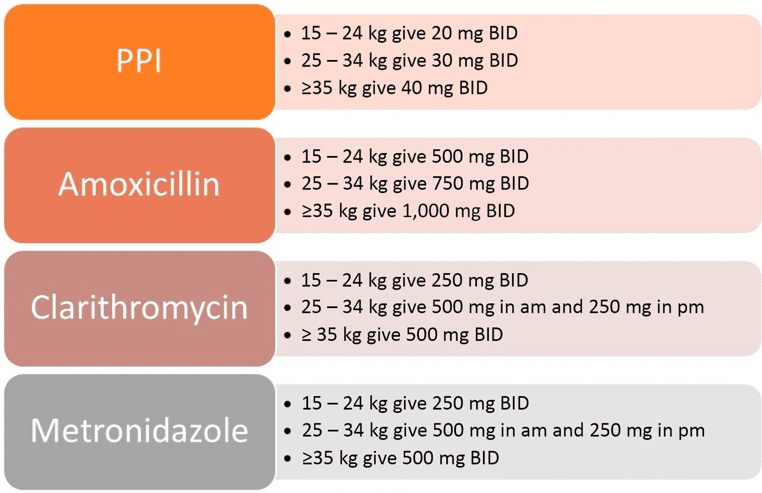
Medical treatment
- Acid production reducers medication: your doctor may prescribe this type of medication also known as histamine 2 blockers to reduce the amount of acid released into your digestive system and to relieve your gastritis. Such as Ranitidine and famotidine.
- Stomach acid neutralizers: your doctor may prescribe this type of medication also known as antacids to neutralize your stomach acid and to relieve gastric pain. Such as Gaviscon and Bismol, this type of medication has a lot of side effects.
- Acid production blockers: your doctor may prescribe this type of medication also known as proton pump inhibitors to reduce your stomach acidity. Such as Nexium and lansoprazole.
- Antibiotics for bacterial infection (Helicobacter pylori): your doctor may prescribe this type of medication in order to kill the bacterium. Such as clarithromycin and amoxicillin, or metronidazole. You should take this medication from 7 to 14 days depends on your doctor and the condition of your symptoms.
Nonmedical treatment
- Do not eat big meals.
- Eat small meals.
- Eat more meals with smaller amounts.
- Do not eat any irritant food.
- Avoid alcohol and reduce smoking
- Try not to take nonsteroidal anti-inflammatory medication
How to prevent me from gastritis?
The only thing you need to do to prevent yourself from H.Pylori bacterium gastritis is good hygiene practice and healthy food.
- Wash your hands frequently may prevent you from H.pylori
- H.pylori is not a transmitted disease
- Eating well-cooked foods may prevent you from H.pylori
Jamil Qaryouti is a nursing specialist who graduated from J.U.S.T University in Jordan. Jamil has a wide verity of experience in cardiac diseases, pulmonary and neurological disease, former ICCU nurse in the Specialty Hospital in Jordan, former CNO of home care, founder of Jamil’s Home Health Corporation. Jamil is a medical educator. He believes spreading the information makes the world better.


